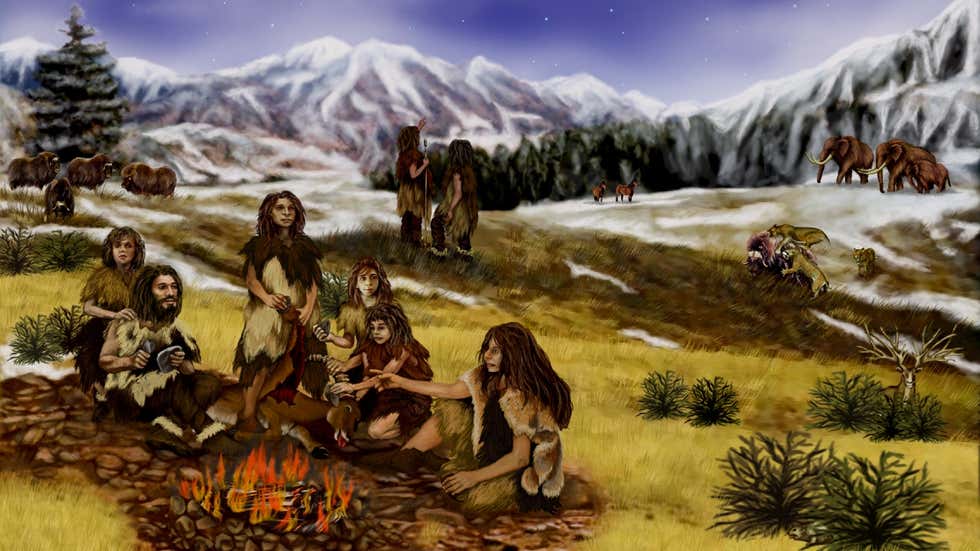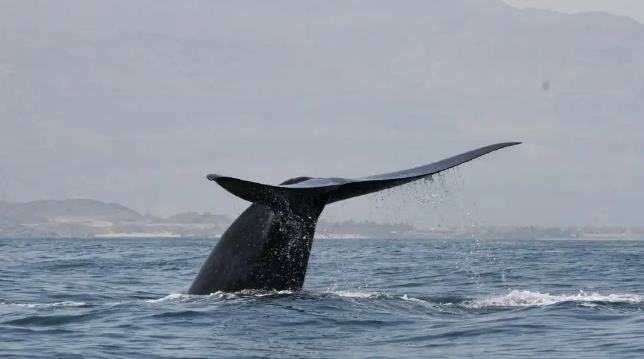
Bizzare Migration of #Earth’s Poles Could Have Triggered Extinction of #Neanderthals, Giant Animals 42,000 Years Ago - By @MrigDixit
weather.com/en-IN/india/sc…
(📸: NASA/JPL)
weather.com/en-IN/india/sc…
(📸: NASA/JPL)

@MrigDixit Before us—the modern human beings or Homo sapiens—tens of thousands of years ago, the planet was dominated by an ancient sibling of ours called #Neanderthals or Homo neanderthalensis.
@MrigDixit While their existence dates back to at least 200,000 years ago, Neanderthals went extinct roughly 40,000 years ago. Several theories have emerged in recent years explaining the cause of their extinction—from #climatechange to a deadly disease.
#Neanderthals
#Neanderthals
@MrigDixit Now, the latest study has offered a completely different explanation for the demise of #Neanderthals. Roughly 42,000 years ago, Earth’s magnetic poles reversed, leading to dramatic changes in the Earth’s life history. This period is dubbed the Laschamp Excursion.
@MrigDixit Coincidentally, the extinction of #Neanderthals coincides with this period and hence the new research indicated a possible link.
@MrigDixit Earth is similar to a magnet bar and the north and south poles represent the two sides and the invisible magnetic field lines encircle the planet between the poles.
#Neanderthals
#Neanderthals
@MrigDixit Scientists are studying Laschamp Excursion to understand the changes that took place when the magnetic field is estimated to have weakened drastically. It lasted for at least 500 years and took an extra 250 years for the Earth poles to come back to their exact positions.
@MrigDixit Scientists—for the first time—were able to create a timescale of events that may have occurred simultaneously with the pole reversal. One of the major consequences for the dwindling of the magnetic field was the depletion of the protective ozone layer.
#Neanderthals
#Neanderthals
@MrigDixit During this time, life on Earth was exposed to intense ultraviolet radiation, which possibly killed #Neanderthals and even other large animals—collectively called the megafauna.
@MrigDixit Dr Chris Turney, lead author of the study explains, "Unfiltered radiation from space was breaking up air particles in the Earth's atmosphere, separating electrons and emitting light—a process called ionization. The ionised air 'sizzled' the ozone layer.”
#Neanderthals
#Neanderthals
@MrigDixit In terms of the climatic impact, the research shows that the event led to the shift of the tropical Pacific rain belts and the Southern Ocean westerly winds in the same time frame. It resulted in arid conditions in places like Australia.
#Neanderthals
#Neanderthals
@MrigDixit To investigate events during Laschamp Excursion, the team conducted radiocarbon analyses of the remains of the ancient sub-fossil kauri trees that were well-preserved in sediments like peat bogs in the wetlands of Ngawha in northern New Zealand. 

@MrigDixit These trees are known to live for a thousand years and store evidence of the variations in the atmosphere in the form of radiocarbon (14C) content.
#Neanderthals
#Neanderthals
@MrigDixit The team studied the rings of the trees, which served as a natural timestamp to the pole migration event and how it changed the Earth environment.
#Neanderthals
#Neanderthals
• • •
Missing some Tweet in this thread? You can try to
force a refresh











